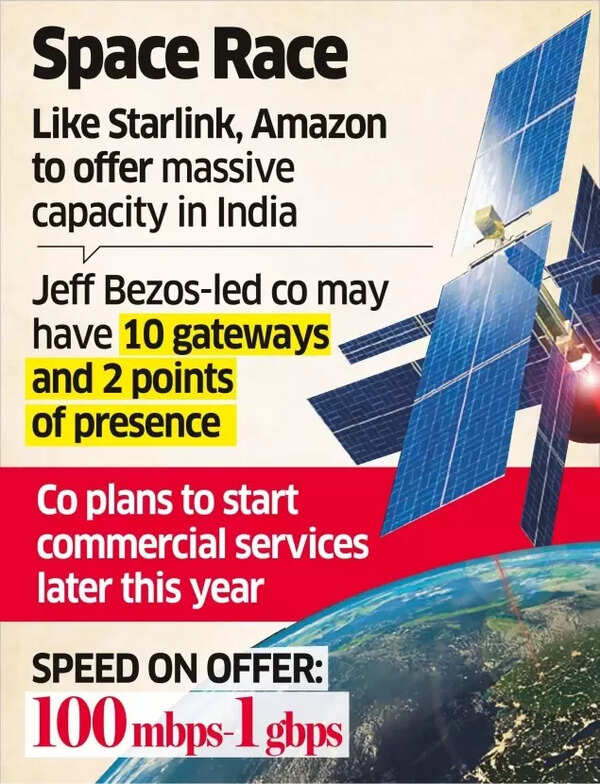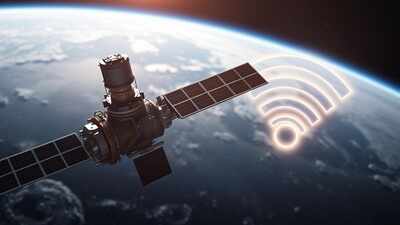After Elon Musk’s Starlink, Jeff Bezos’ Amazon Project Kuiper may enter India’s lucrative satellite internet market

After Elon Musk’s Starlink, Amazon’s Project Kuiper, under Jeff Bezos‘s leadership, is seeking to enter India’s satellite internet sector. It has approached the Department of Telecommunications (DoT) for application approval.The satellite communications sector in India already includes established players like Bharti-backed Eutelsat OneWeb and Reliance Jio-SES JV, both holding GMPCS permits and IN-SPACe clearances. Additionally, Globalstar, Apple’s satellite communications partner, has submitted applications to IN-SPACe for operational authorisation in India.The Amazon-supported venture intends to establish substantial satellite communications infrastructure in India, including ten gateways and two presence points situated in Mumbai and Chennai, according to multiple sources familiar with the situation who spoke to ET.A source revealed that the organisation recently submitted correspondence to DoT, seeking quick issuance of a letter of intent for satellite communications authorisation (Global Mobile Personal Communication by Satellite).

Amazon Satellite Internet plans for India
This communication preceded DoT’s recent issuance of an LoI to Starlink, the source confirmed.Amazon submitted its application to DoT approximately two years ago, and with its satellite launches now underway, the company seeks to obtain all necessary approvals before launching commercial services later this year, according to a source familiar with the matter.Kuiper launched 27 satellites into orbit last month, with additional launches scheduled in the upcoming months. The company aims to establish a low earth orbit (LEO) constellation exceeding 3,200 satellites, with the majority expected to be operational by February-March next year.Also Read | Elon Musk’s Starlink issued Letter of Intent by Indian government for satcom servicesIndustry analysts note that these timelines could shift, considering the initial commercial launch experienced several months of delay.Industry specialists indicate that the satellite capacity generated by Kuiper and Starlink, which currently operates over 7,000 LEO satellites, would significantly exceed their competitors. For comparison, Eutelsat OneWeb operates 648 LEO satellites, whilst the Jio-SES partnership will utilise approximately 11 medium earth orbit (MEO) satellites.Starlink intends to establish three gateways in India, whereas Kuiper plans for 10. Eutelsat-OneWeb and Jio-SES will each maintain two gateways.Consequently, the two American companies will provide the bulk of satellite capacity available for use in India.Present non-geostationary orbit (NGSO) satellites in India offer a total bandwidth capacity of roughly 70 gigabits per second (Gbps), while geostationary orbit (GSO) satellites provide approximately 58 Gbps. However, the implementation of LEO constellations will substantially increase this capacity to several terabytes.





